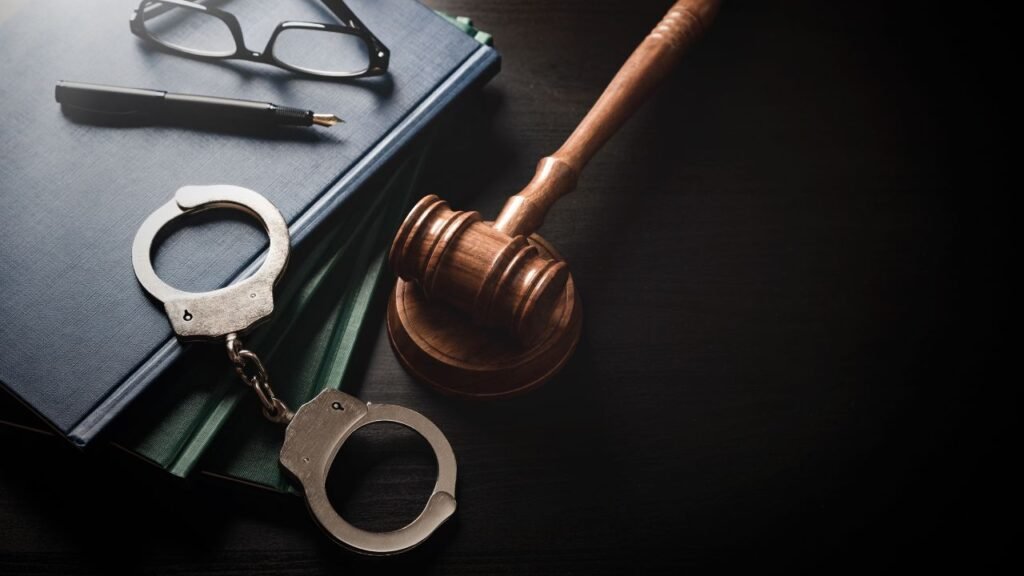Can the Government See My Search History

Yes, the government can potentially see your search history. They may need legal permissions, but it’s possible.
Privacy concerns are growing. Many wonder about online activity being tracked. Search history is personal. It reveals interests, curiosities, and thoughts. Knowing if the government can access it is crucial. This blog will explore how and when this happens. Understanding your rights and privacy online is important.
Let’s dive into what you need to know. Stay informed and protect your online presence.
How Search Engines Store Data
Understanding how search engines store data is essential. Search engines collect and store vast amounts of information. This helps to provide better search results. But it also raises concerns about privacy. Let’s dive into the specifics of data collection methods and retention policies.
Data Collection Methods
Search engines use various methods to collect data. Each search query gets logged. This includes the words you type and the links you click. Your IP address is also recorded. This can reveal your location. Cookies track your behavior across websites. These small files store data about your preferences and activities.
Search engines also gather data from other sources. They may collect information from social media. They may also gather data from third-party websites. All this data helps to build a detailed profile of your online activities.
Retention Policies
Retention policies dictate how long search engines keep your data. These policies vary between companies. Some search engines keep data for a few months. Others may store it for years. Data retention helps to improve search algorithms. It also aids in creating personalized experiences.
But long retention periods raise privacy concerns. The longer data is stored, the higher the risk of misuse. Users should be aware of how their data is stored and for how long. Always check the privacy policies of the search engines you use. Understanding these policies can help you manage your online privacy.
Government Surveillance Laws

Government surveillance laws are a key concern for many individuals. These laws dictate the extent to which the government can monitor online activities, including your search history. Understanding these laws can provide clarity on what is permissible and what is not.
Relevant Legislation
Several laws govern government surveillance in different countries. In the United States, the Patriot Act is a significant piece of legislation. It allows the government to monitor online activities for national security reasons.
The Foreign Intelligence Surveillance Act (FISA) also plays a crucial role. It permits surveillance of foreign nationals suspected of espionage or terrorism.
In the European Union, the General Data Protection Regulation (GDPR) limits data collection. It aims to protect citizens’ privacy and restricts government access to personal data.
Countries like China have the Cybersecurity Law. This law mandates internet service providers to share user data with the government.
Legal Justifications
Governments use various justifications for surveillance. The primary reason is national security. Authorities argue that monitoring online activities helps prevent terrorism and espionage.
Law enforcement is another justification. Monitoring can help in criminal investigations and prosecutions. Authorities can track illegal activities and gather evidence.
Surveillance is also justified for public safety. Governments monitor online behavior to prevent harm to the public. This includes monitoring for threats of violence or illegal activities.
Finally, some governments argue for surveillance to protect children. They monitor online activities to prevent child exploitation and abuse.
| Legislation | Country/Region | Purpose |
|---|---|---|
| Patriot Act | United States | National security |
| FISA | United States | Foreign surveillance |
| GDPR | European Union | Data protection |
| Cybersecurity Law | China | Internet monitoring |
Understanding these laws and justifications can help you navigate your online privacy. Knowing the extent of government surveillance can inform your internet usage and data sharing practices.
Agencies Involved In Data Collection
Concern about online privacy is growing. People often wonder if the government can see their search history. Various agencies are involved in data collection. These agencies work to monitor online activities. They do this to ensure security and protect citizens.
Domestic Agencies
In the United States, several domestic agencies collect data. The National Security Agency (NSA) is one of the key players. The NSA monitors internet traffic and communication. They look for threats to national security. The Federal Bureau of Investigation (FBI) also collects data. They track online activities related to crime and terrorism.
Other agencies like the Department of Homeland Security (DHS) play a role. DHS focuses on cyber threats and protecting infrastructure. These agencies work together to safeguard the country. Their goal is to prevent harm and ensure safety.
International Cooperation
Governments also work with international partners. The Five Eyes alliance is a prime example. It includes the United States, United Kingdom, Canada, Australia, and New Zealand. These countries share intelligence and data. They collaborate to monitor global threats.
Other international agencies also cooperate. Europol helps European countries fight cybercrime. Interpol assists in global law enforcement. This cooperation enhances the ability to track and prevent online threats.
Methods Of Accessing Search History

Many people worry about whether the government can see their search history. Understanding the methods of accessing search history can help ease these concerns. There are specific ways authorities can obtain this information.
Warrants And Subpoenas
The government can access your search history through warrants and subpoenas. A warrant is a legal order from a judge. It allows law enforcement to search and seize your data. A subpoena, on the other hand, is a request for information. It’s usually issued by a court or government agency.
- Warrants require probable cause. This means there must be a reason to believe you have committed a crime.
- Subpoenas are easier to obtain. They do not need probable cause. They can be used for investigations, even if there is no crime.
Both methods involve legal processes. These ensure that your rights are protected.
Direct Access
In some cases, the government may have direct access to your search history. This access is usually granted through agreements with internet service providers (ISPs) or search engines.
Here are some ways direct access can occur:
- ISPs may be required to keep logs of your internet activity.
- Search engines may store your search queries and share them with authorities.
- National security laws may allow government agencies to monitor online activities.
Direct access bypasses the need for a warrant or subpoena. It can happen without your knowledge.
Understanding these methods can help you stay informed. It’s important to know how your search history can be accessed and used.
Implications For Personal Privacy
Many people worry about their personal privacy when they think about the government having access to their search history. The idea of someone watching every click and search can be unsettling. Understanding the implications for personal privacy can help you navigate this complex issue.
Potential Risks
The potential risks to personal privacy are significant. Here are a few key concerns:
- Loss of Confidentiality: Your private searches could become public.
- Misinterpretation: Search queries might be misunderstood, leading to false assumptions.
- Data Misuse: Personal data could be used for unintended purposes.
These risks highlight the importance of being aware of how search data is handled and who has access to it.
Protective Measures
There are several steps you can take to protect your search history and personal privacy.
- Use Private Browsing: Incognito mode can prevent search history from being saved.
- Enable VPN: A VPN can mask your IP address and encrypt your data.
- Clear Cookies: Regularly deleting cookies can reduce tracking.
Implementing these measures can help safeguard your personal information from unwanted access.
Technological Measures To Protect Privacy
In the digital age, privacy concerns are on the rise. Many people worry if the government can see their search history. Fortunately, several technological measures can help protect your privacy. Understanding these tools can give you peace of mind and greater control over your online activities.
Encryption
Encryption is a critical tool for safeguarding your data. It scrambles your information, making it unreadable to unauthorized parties. Websites using HTTPS are encrypted. Always look for the padlock icon in the browser’s address bar. This indicates that the connection is secure. End-to-end encryption is even more secure. It ensures only the sender and receiver can read the messages. Apps like Signal and WhatsApp use this kind of encryption. This keeps your communication private.
Private Browsing
Private browsing is another way to enhance your privacy. Browsers like Chrome and Firefox offer this feature. Private browsing mode does not save your history. It also does not save cookies or form data. This is useful if you share your device with others. Remember, private browsing does not make you anonymous. Your internet service provider can still see your activity. To achieve better privacy, consider using a VPN. This masks your IP address and encrypts your data.
Public Opinion And Ethical Considerations
The topic of government surveillance of search history sparks diverse opinions. Many people feel uneasy about the idea. This section delves into what the public thinks and the ethical concerns surrounding this issue.
Public Awareness
More people now know about digital privacy concerns. Awareness campaigns and news stories have brought the issue to light. The general public now questions how much the government can see.
Survey data shows that many citizens worry about their online privacy. They fear their search history might be monitored. This worry is not limited to tech-savvy individuals. It spans across all age groups and demographics.
Here is a table showing the percentage of concerned individuals by age group:
| Age Group | Percentage Concerned |
|---|---|
| 18-24 | 65% |
| 25-34 | 70% |
| 35-44 | 60% |
| 45-54 | 55% |
| 55 and older | 50% |
Ethical Debates
The ethical debates on this topic are intense. Some argue that government surveillance is necessary for security. Others believe it violates personal freedom and privacy. Both sides have valid points.
Here are some key ethical questions:
- Is it right for the government to monitor search history?
- Does surveillance make us safer?
- How does it affect our freedom?
Many feel that the government should have clear rules and limits. These should protect citizens’ rights. Transparency is also crucial. People want to know what data is collected and why.
Ethical concerns also involve the potential for abuse. Who watches the watchers? This question highlights the need for oversight. Independent bodies should monitor government actions. This can help prevent misuse of power.
In summary, public opinion and ethical considerations are complex. Both sides of the debate raise important points. Awareness and ethical reflection are key in navigating this issue.
Frequently Asked Questions
Can The Government Track My Internet Searches?
Yes, the government can track your internet searches if they have legal authorization. They usually require a warrant.
Does Incognito Mode Hide My Search History From The Government?
No, incognito mode does not hide your search history from the government. It only prevents local device storage.
Can My Isp See My Search History?
Yes, your Internet Service Provider (ISP) can see your search history. They can log and store this data.
How Can I Protect My Search History From The Government?
Using a VPN can help protect your search history. It encrypts your internet traffic, making it harder to track.
Conclusion
Protecting your privacy online is crucial. Governments can access your search history. Always use secure connections and private browsing. Be cautious about the information you share. Understand the laws in your country. Use tools like VPNs for added security. Stay informed and proactive.
Your online privacy matters. Make smart choices to protect it.
